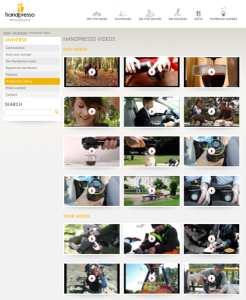
StartupStockPhotos / Pixabay
There is usually a point in the growth of a business when the hard work begins to pay off, and the opportunities start pouring in.
Instead of chasing down that next sale, you’ve got a full calendar of prospect meetings.
After pitching hundreds of podcasters and event hosts, you now have a flood of speaking gigs in your social media DMs.
Not to mention all those requests to “pick your brain” and collaborate on a “hot” new idea.
As flattering as all of that attention is, too many opportunities at once can feel a bit overwhelming. Not to mention the pressure to pick the best opportunities to move forward on. There is a fine line between good opportunities and great ones.
Good opportunities can suck up your time and energy but lead to zero results. Great opportunities align with the business owner’s growth goals and are worth the time and effort to pursue. Great opportunities generate MORE great opportunities.
How do you choose between good ones that end up going nowhere and great opportunities that accelerate your goal achievement?
Get Clear What Success Really is For You
Everyone defines success differently. For some, success means more money or clients. For others, getting in front of high profile leaders in your industry is worth the time. Before saying yes to another opportunity presented by a well-intended colleague, clarify what’s important right now. Identify what factors need to occur that make the opportunity worth your time, money and energy to participate in.
One of my clients, Sarah, found that she was at the stage in her business that being of service was the big payoff. She had made lots of money, her business was in auto-pilot, and all she wanted to do was inspire other women to pursue their dreams.
But Sarah was in a growth stage and knew her priority was attracting potential clients and referral partners. She had developed some notoriety around her message in the last 12 months and had no shortage of invitations to speak. But after taking the stage at three events where the audience was composed of people who would never be a good fit for her company, Jessica realized she needed to filter out speaking requests a bit more.

- qimono / Pixabay
By saying no to good speaking opportunities that helped Sarah establish her influence, she said yes to the greater opportunity of making sales.
Fine Tune Your Values Vs Priorities
Sherry, a long-time client of mine, found herself in a bit of a challenge with what to say yes to. She recognized the value of visibility and had offer after offer to be a guest on podcasts. But at the same time, she was building up her own live event series and felt the pressure to tackle her long list of action steps.
As I coached Sherry through her decision making process, it became crystal clear that she valued the visibility opportunities but her priority needed to be filling her events. Every second she put towards other opportunities was robbing her available time to make her own events a success.
“Clarity is key. If you know what’s important right now, it’s easier to say no to opportunities that are a distraction.”
Saying no, even when it was a really enticing offer, helped her stop getting distracted and start focusing on activity that would generate results. Sherry’s next three events had enrollments three times greater than her previous ten events. And that payoff helped Sherry lock-in a better habit.
Hold Out For The Right Fit
Just because it’s a great opportunity, doesn’t make it YOUR perfect opportunity. I learned a costly lesson about fifteen years ago. I was invited into a “dream visibility platform” with three big influencers in my industry.
The opportunity took up a pretty good chunk of my team’s time to prepare the promotional elements and invite hundreds of my own community to participate in this online event. The return on investment initially seemed fantastic — I ended up with over 1,000 new members in one of my programs. But they only stayed for 30 days and as soon as it came time to pay to stay in the program, they bailed out.
What I failed to recognize was this audience was not my target audience; they were freebie seekers (people who leap from one free offer to another hoping to puzzle piece together a strategy to be successful in business.) This audience wasn’t full of buyers and even though it was a high profile opportunity, it wasn’t the RIGHT fit for my program offers. This taught me a valuable lesson – dig in and really make sure the audience is MY target audience.
When an opportunity to collaborate, speak, teach, write or otherwise share your superpowers comes along, make sure the audience is actually a good fit for your offerings. Otherwise, you’ll attract leads that can’t — or won’t — ever buy from you. That scenario makes for a lot of work and very little return.
Banish the “Automatic Yes”
Before you do the automatic yes, flush out all the details to make sure the opportunity is really worth the time and effort. Some business owners have a habit of giving an “automatic yes.” Flattered to be invited into a good opportunity, the owner doesn’t want to experience the dreaded FOMO (Fear of Missing Out.) But, is that opportunity really aligned?
- Will it put you in front of ideal customers or other influential leaders in your industry?
- Will it move you towards your set goals and priorities?
- What will you have to say NO to or pause to make space for this opportunity?

- MorganK / Pixabay
It might help to keep my favorite decision-making mantra in your mind:
“Everything you say yes to means you are saying no to something else.
Make sure your yes is worth it.”
Learn to ask the right questions BEFORE you give a hard yes. Make sure the opportunity is a match with your goals and priorities.
One technique I teach my clients is to create a “high payoff opportunity filter.” This is a set of questions you ask yourself before you say yes to make sure that it’s a good use of your time and energy. By using those questions as a gauge, you will eliminate shiny ideas before you commit.
Shore Up Your Boundaries
Struggling with giving your automatic yes before you think through the opportunity? Have a hard time saying no to great opportunities, even though you know you don’t have the bandwidth? Establish better boundaries. Hire a gatekeeper who will use the “high payoff opportunity filter” before the opportunity gets to you. It’s important to establish a system to keep your goals front and center and amplify your commitment to achieving them so that distractions can have less influence over your decision making.
Just remember that as you become more successful, your time will be more in demand by others who want to leverage your influence and wisdom. Saying no will become just as important as saying yes to the right opportunities.
Learning to say no is often a strength that one must cultivate. I find it gets easier and easier if you know what your high ROI activities are — and what they are not. If this is a skill you are mastering, be sure to check out my Amplify Your Success Podcast episode, A Simple Formula to Pick Your Best Opportunities. I’ll take you through creating your opportunity filter in greater detail.
Business & Finance Articles on Business 2 Community
(35)
Report Post




